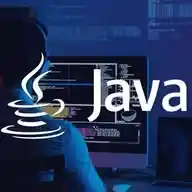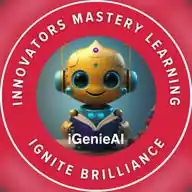
Java Programming
377.4K subscribers
About Java Programming
Everything you need to learn Java Programming For business queries, reach out to [email protected] Join our telegram channel: 👇 https://t.me/Java_Programming_Notes Applications of Java Programming: ✅ Android App Development ✅ Web Development (Backend) ✅ Enterprise Applications (Banking, Insurance) ✅ Game Development ✅ Desktop GUI Applications ✅ Big Data Technologies (Hadoop, Apache Spark) ✅ Cloud-based Applications ✅ Embedded Systems ✅ Robotics & IoT ✅ Scientific Applications ✅ RESTful API Development ✅ FinTech & Trading Platforms ✅ ERP & CRM Systems ✅ Cybersecurity Tools ✅ Test Automation (Selenium with Java) 🏢 Companies Actively Hiring Java Developers in 2025 TCS Infosys Wipro Capgemini Cognizant Accenture IBM HCL Technologies Tech Mahindra L&T Infotech 🌍 Global Product-Based Giants: Google Amazon Netflix Meta (Facebook) Microsoft Oracle Salesforce VMware SAP JP Morgan Chase Goldman Sachs 💡 Startups & Growing Tech Firms: Zeta CRED Razorpay Swiggy Zomato Freshworks Flipkart PhonePe BrowserStack Postman
Similar Channels
Swipe to see more
Posts

𝟭𝟬𝟬𝟬+ 𝗙𝗿𝗲𝗲 𝗖𝗲𝗿𝘁𝗶𝗳𝗶𝗲𝗱 𝗖𝗼𝘂𝗿𝘀𝗲𝘀 𝗯𝘆 𝗜𝗻𝗳𝗼𝘀𝘆𝘀 – 𝗟𝗲𝗮𝗿𝗻, 𝗚𝗿𝗼𝘄, 𝗦𝘂𝗰𝗰𝗲𝗲𝗱!😍 🚀 Looking to upgrade your skills without spending a rupee?💰 Here’s your golden opportunity to unlock 1,000+ certified online courses across technology, business, communication, leadership, soft skills, and much more — all absolutely FREE on Infosys Springboard!🔥 𝐋𝐢𝐧𝐤👇:- https://pdlink.in/43UcmQ7 Save this blog, sign up, and start your upskilling journey today!✅️


🟡 *Java Collections Framework: Detailed Guide* 📚 The Java Collections Framework provides powerful data structures and algorithms to store, retrieve, and manipulate data efficiently. *1. Core Interfaces* - *Collection:* Root interface for groups of objects. - *List:* Ordered collection, allows duplicates. Example implementations: - *ArrayList:* Resizable array, fast random access, slow insert/delete in middle. - *LinkedList:* Doubly linked list, fast insert/delete, slower random access. - *Set:* No duplicates allowed, unordered (except LinkedHashSet maintains insertion order). Implementations: - *HashSet:* Uses hashing for fast operations. - *TreeSet:* Sorted set using a red-black tree. - *Queue:* FIFO data structure for holding elements before processing. Examples: - *LinkedList* (also implements Queue) - *PriorityQueue:* Elements ordered by priority. - *Map:* Key-value pairs, unique keys. Implementations: - *HashMap:* Fast, unsorted. - *LinkedHashMap:* Maintains insertion order. - *TreeMap:* Sorted keys. *2. Common Operations* - Add: `add(element)` - Remove: `remove(element)` - Check existence: `contains(element)` - Size: `size()` - Iterate: Using *Iterator*, *for-each loop*, or Java 8 *forEach()* method. *3. Iterators* - *Iterator:* Allows safe traversal and element removal during iteration. - *ListIterator:* Bidirectional iterator for Lists, can add or modify elements during iteration. *4. Advantages of Using Collections* - Dynamic sizing (unlike arrays). - Ready-to-use algorithms: sorting, searching, shuffling. - Improved performance with hashing and trees. - Consistent API across different data structures. *5. Example: Using ArrayList* ```java List<String> fruits = new ArrayList<>(); fruits.add("Apple"); fruits.add("Banana"); fruits.add("Cherry"); // Iterate for(String fruit : fruits) { System.out.println(fruit); } // Remove element fruits.remove("Banana"); ``` *6. Example: HashMap Usage* ```java Map<Integer, String> map = new HashMap<>(); map.put(1, "One"); map.put(2, "Two"); // Access by key System.out.println(map.get(1)); // Output: One // Iterate entries for(Map.Entry<Integer, String> entry : map.entrySet()) { System.out.println(entry.getKey() + " : " + entry.getValue()); } ``` 🔥 *Pro Tip:* Choose the right collection based on your needs—use List for ordered data, Set to avoid duplicates, and Map for key-value pairs. *Double TAP ❤️ for more!*

📁 *Java File I/O (Input/Output)* 🔄 🧾 *1. Reading Files* • Using `File` + `Scanner`: ```java File file = new File("data.txt"); Scanner sc = new Scanner(file); while (sc.hasNextLine()) { System.out.println(sc.nextLine()); } ``` • Using `BufferedReader`: ```java BufferedReader br = new BufferedReader(new FileReader("data.txt")); String line; while ((line = br.readLine()) != null) { System.out.println(line); } br.close(); ``` 📝 *2. Writing to Files* • Using `FileWriter`: ```java FileWriter fw = new FileWriter("output.txt"); fw.write("Hello, World!"); fw.close(); ``` • Using `BufferedWriter`: ```java BufferedWriter bw = new BufferedWriter(new FileWriter("output.txt")); bw.write("This is a new line."); bw.newLine(); bw.write("Another line."); bw.close(); ``` 🔐 *3. Best Practices* ✅ Always close files (`close()` method) ✅ Use `try-with-resources` to auto-close ✅ Handle exceptions (`IOException`) 💡 *Tip:* Try building a mini text editor or log analyzer to practice! Java Roadmap: https://whatsapp.com/channel/0029VamdH5mHAdNMHMSBwg1s/810 *React ❤️ for more* ✨📂

𝗙𝗿𝗲𝗲 𝗣𝘆𝘁𝗵𝗼𝗻 𝗖𝗼𝘂𝗿𝘀𝗲: 𝗧𝗵𝗲 𝗕𝗲𝘀𝘁 𝗦𝘁𝗮𝗿𝘁𝗶𝗻𝗴 𝗣𝗼𝗶𝗻𝘁 𝗳𝗼𝗿 𝗧𝗲𝗰𝗵 & 𝗗𝗮𝘁𝗮 𝗔𝗻𝗮𝗹𝘆𝘁𝗶𝗰𝘀 𝗕𝗲𝗴𝗶𝗻𝗻𝗲𝗿𝘀😍 🚀 Want to break into tech or data analytics but don’t know how to start?📌✨️ Python is the #1 most in-demand programming language, and Scaler’s free Python for Beginners course is a game-changer for absolute beginners📊✔️ 𝐋𝐢𝐧𝐤👇:- https://pdlink.in/45TroYX No coding background needed!✅️


🧑💻 *Java Roadmap for Freshers – From Zero to Job Ready!* ☕🚀 If you're starting your tech journey with *Java*, here's a clear step-by-step guide to build a strong foundation and get job-ready: *1️⃣ Core Java Fundamentals* Master the basics first: - Data types, variables, operators - Control statements (if, loops, switch) - Arrays and strings - Methods and recursion *2️⃣ Object-Oriented Programming (OOP)* Java is fully OOP-based. Learn: - Classes & Objects - Inheritance, Polymorphism - Encapsulation, Abstraction - Constructors, ‘this’ and ‘super’ keywords *3️⃣ Exception Handling & File I/O* - Try-catch, finally, custom exceptions - File reading/writing using File, Scanner, BufferedReader *4️⃣ Collections Framework* Essential for coding interviews: - List, Set, Map (ArrayList, HashMap, HashSet) - Iterators, sorting, comparator - Stack, Queue, PriorityQueue *5️⃣ Java 8+ Features* Modern Java skills: - Lambda expressions - Streams API - Functional interfaces - Method references, Optional class *6️⃣ JDBC (Java Database Connectivity)* Connect Java to databases: - MySQL integration - CRUD operations - PreparedStatement, ResultSet *7️⃣ Build Mini Projects* Start small to apply your learning: - Student management system - Banking application - Simple web app with JSP/Servlets *8️⃣ Learn Version Control (Git)* - Push projects to GitHub - Understand commits, branches, merges *9️⃣ Resume & LinkedIn Setup* - Highlight Java skills, OOP, and projects - Add DSA achievements if any - Connect with Java communities *🔟 Practice DSA in Java* - Arrays, Strings, Trees, Graphs - Use LeetCode, CodeStudio, GeeksforGeeks 💡 *Tip:* Build a strong Java foundation before moving to Spring Boot or Android. Clarity > Speed. ✨ *Double Tap ❤️ for more!*

*👩💻 Java Developer Guide for Freshers! ☕✨* If you’re just starting in tech and want to become a Java Developer, follow this structured path step-by-step: 🔰 *1. Understand Java Basics* – What is Java? (Platform-independent, OOP language) – Learn: Data Types, Variables, Operators – Practice: If-else, Switch, Loops 📌 *Tool:* Start coding in IntelliJ or Eclipse 🔰 *2. Master OOP Concepts* – Learn about: ➤ *Class & Object* ➤ *Encapsulation* – Protecting data ➤ *Inheritance* – Reusing features ➤ *Polymorphism* – One interface, many forms – Build small examples: Student class, Shape class 🔰 *3. Learn Core Java Essentials* – Arrays, Strings, Math class – Create small programs: calculator, string reversal, array sorting 🔰 *4. Explore Java Collections* – Lists (ArrayList), Sets (HashSet), Maps (HashMap) – Understand how to store, sort, and search data efficiently 🔰 *5. Practice Exception Handling* – Learn try-catch blocks, throw/throws, custom exceptions – Example: Handle division by zero or invalid input 🔰 *6. File Handling Basics* – Read/write files using Scanner, FileWriter, BufferedReader – Build: Note saver or basic file reader 🛠 *7. Build Confidence with Mini Projects* – To-Do App – Library Book System – Student Record Manager 🌱 *Tips for Freshers:* ✔️ Practice daily – even 30 minutes helps ✔️ Don’t just watch tutorials – *code along* ✔️ Google errors – it's part of the process ✔️ Share your code on GitHub to build your profile 💬 *React ❤️ for more!*

*🔥 Java Project Ideas to Practice & Learn OOP 👨🏻💻☕* *🎯 Beginner Level* • Calculator using Swing • Unit Converter • Number Guessing Game • ATM Interface (Console-based) • Student Grade Manager *⚙️ Intermediate Level* • Library Management System • Online Quiz App • File Encryption/Decryption Tool • Hotel Booking System • Expense Tracker with File Storage *🚀 Advanced Level* • E-commerce Backend (with JDBC/MySQL) • Chat Application using Sockets • Inventory Management System • Banking System with GUI + Database • JavaFX-based Task Planner 💬 *Double Tap ❤️ if this helped!*

𝐀𝐦𝐚𝐳𝐨𝐧 𝐅𝐑𝐄𝐄 𝐂𝐞𝐫𝐭𝐢𝐟𝐢𝐜𝐚𝐭𝐢𝐨𝐧 𝐂𝐨𝐮𝐫𝐬𝐞𝐬 😍 Learn AI for free with Amazon's incredible courses! These courses are perfect to upskill in AI and kickstart your journey in this revolutionary field. 𝐋𝐢𝐧𝐤 👇:- https://bit.ly/3CUBpZw Don’t miss out—enroll today and unlock new career opportunities! 💻📈


*⚠️ Exception Handling in Java* *1️⃣ What is an Exception?* An exception is an unwanted event that disrupts normal program flow. Example: Dividing a number by zero. *2️⃣ Types of Exceptions* - *Checked Exceptions:* Must be handled (e.g., IOException, SQLException) - *Unchecked Exceptions:* Occur at runtime (e.g., NullPointerException, ArithmeticException) *3️⃣ try-catch Block* Used to handle exceptions safely. ```java try { int result = 10 / 0; } catch (ArithmeticException e) { System.out.println("Cannot divide by zero!"); } ``` *4️⃣ finally Block* Always runs, even if exception occurs. Used for closing resources. ```java finally { System.out.println("This always executes."); } ``` *5️⃣ throw Keyword* Used to *manually* throw an exception. ```java throw new IllegalArgumentException("Invalid input"); ``` *6️⃣ throws Keyword* Used in method signature to declare exceptions. ```java void readFile() throws IOException { // code that might throw exception } ``` *7️⃣ Custom Exception* You can create your own exception class: ```java class MyException extends Exception { MyException(String msg) { super(msg); } } ``` *8️⃣ Best Practices* - Catch specific exceptions (not just Exception) - Don’t suppress exceptions silently - Clean up with `finally` or try-with-resources - Always log the exception (e.g., `e.printStackTrace()`) Java Roadmap: https://whatsapp.com/channel/0029VamdH5mHAdNMHMSBwg1s/810 *React ❤️ for more*

𝗟𝗲𝗮𝗿𝗻 𝗳𝗿𝗼𝗺 𝗜𝗜𝗠 𝗕𝗮𝗻𝗴𝗮𝗹𝗼𝗿𝗲 𝗳𝗼𝗿 𝗙𝗥𝗘𝗘: 𝗖𝗲𝗿𝘁𝗶𝗳𝗶𝗲𝗱 𝗖𝗼𝘂𝗿𝘀𝗲𝘀 𝗶𝗻 𝗠𝗮𝗿𝗸𝗲𝘁𝗶𝗻𝗴, 𝗦𝘁𝗿𝗮𝘁𝗲𝗴𝘆, 𝗗𝗮𝘁𝗮 & 𝗠𝗼𝗿𝗲!😍 🎓 Imagine learning from IIM Bangalore without spending a rupee. No, it’s not a scam — it’s one of India’s smartest learning opportunities! 💯 Thanks to SWAYAM, you can now access certified courses directly from IIMB professors — absolutely free🔥 𝐋𝐢𝐧𝐤👇:- https://pdlink.in/4nfXDrV And here’s the best part — no CAT score, no tuition fee, and no classroom needed✅️















